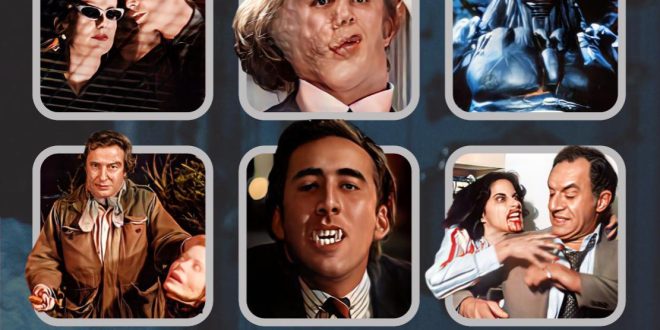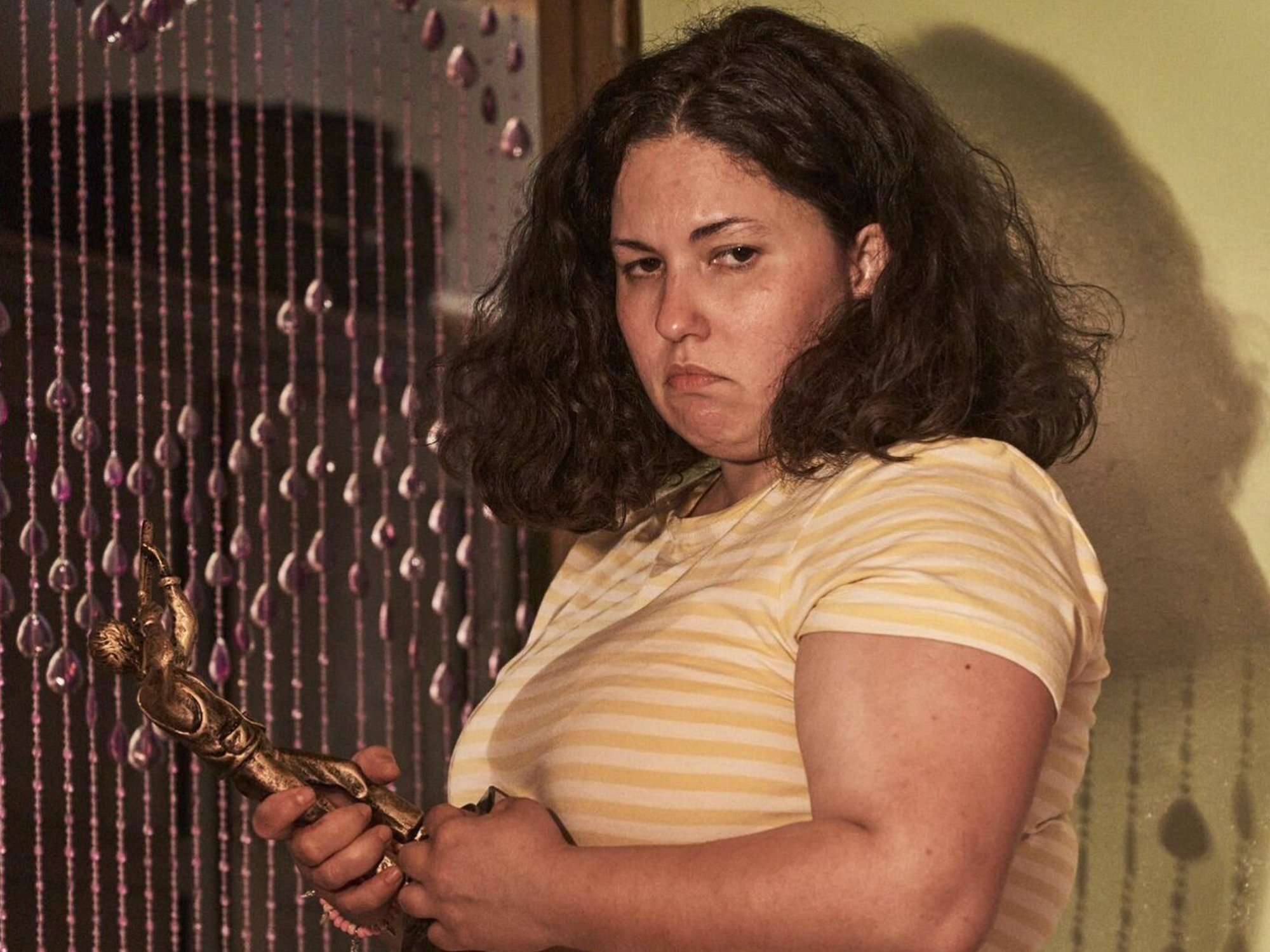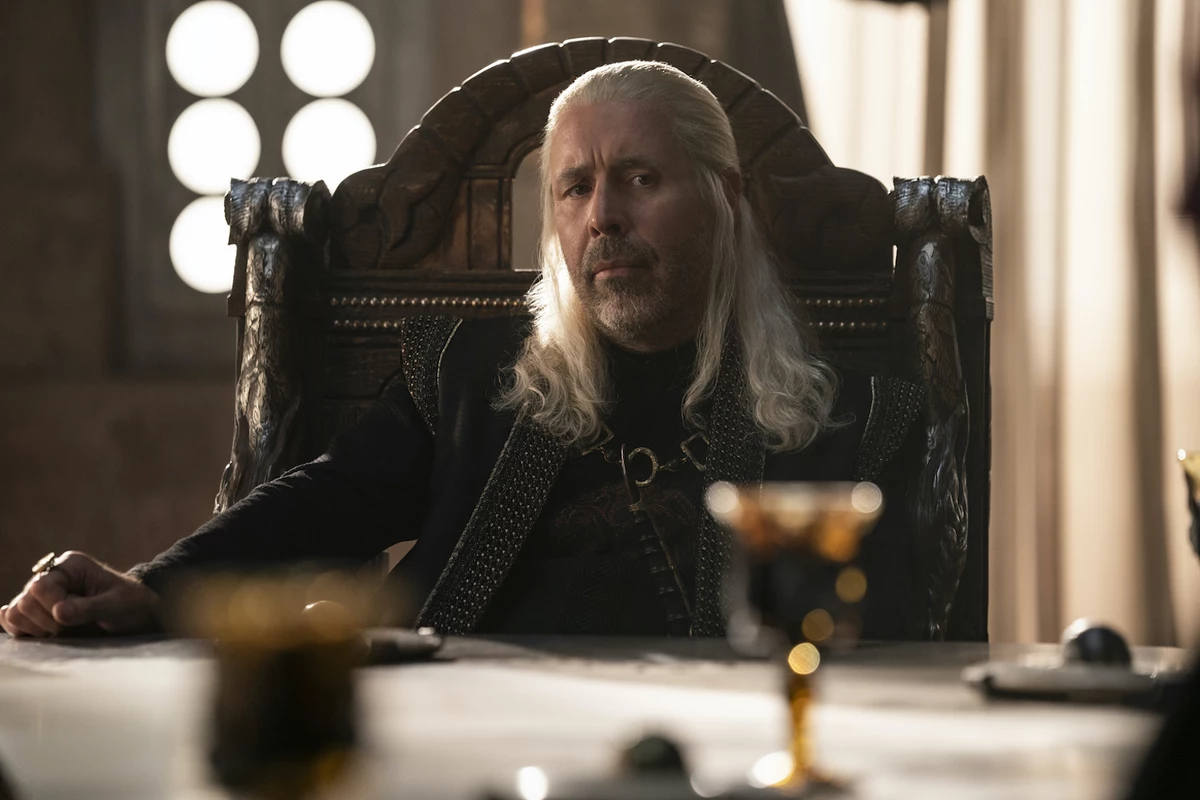Scream rewired the horror audience in 1996, exploring anew the connective tissue that bridged the history of the genre with its future patrons and purveyors. The resulting franchise encompassed a host of familiar tropes of both the slasher and “whodunit” variety, comprising ringing phones accompanied by mysterious callers, self-aware and snarky young adults and rules to survive by that, perhaps by design, often don’t hold all that true in the end.
But just as important as any recurring narrative beat or cameoing survivor is a song. While it only plays for what amounts to a handful of minutes over the course of five films, Nick Cave & The Bad Seeds’ “Red Right Hand” is as instrumental to the atmosphere of the Scream franchise as the looming threat of those who hide behind the trademark white mask caught in its silent howl.
First coined by 17th century poet John Milton in his 1667 epic Paradise Lost, the phrase “red right hand” was initially used to denote the wrath fueled vengefulness of God. Reinterpreted by Nick Cave and Mick Harvey for their 1994 album Let Love in, “Red Right Hand” became the anthem of a mysterious presence, a force like a gathering storm whose terrifying machinations will ultimately lead to cataclysmic ruination for any soul unlucky enough to cross their shadowy path.
With a beat that resonates like the quick, piercing thrust of a knife and lyrics that rumble like the distant thunder announcing a downpour fast approaching, the careful placement of the song throughout the series both announces and ensures the weight of its sometimes broad tonal shifts. Like the films, “Red Right Hand” evolves, physically and diegetically, even landing as the concluding element of the initial trilogy of films. It’s a perfect marriage of complimentary terror, advancing the whole to new levels of depth, meaning and fear.
Scream (1996)
Time stamp: 0:38:23 — 0:38:46 (1:50:56)
“Red Right Hand” first resounds as brief background music over a wide, sweeping shot of Woodsboro. Occurring moments after Sidney’s late night phone call from the killer while she spends the night at Tatum’s house, the shot opens with a billowing American flag being hoisted as skateboarders cruise the streets and people bustle about the town.
After the loud clang of a bell and a jazzy, downbeat riff, the image transitions back to Tatum’s kitchen where she comforts Sidney while a news broadcast covers the savage rape and torture of Maureen Prescott, Sidney’s mother. Immediately, the song associates itself with the dark underbelly residing beneath the bright, sunny exterior of the American suburbs and the disturbing ease by which its inhabitants transform real life horror into fleeting entertainment.
Time stamp: 0:57:37 — 0:59:00 (1:50:56)
The second time the song plays, it’s for a longer duration. Just after the scene in which Randy and Billy accuse one another of being the killer in the video store, a hard cut depicts a man locking up his shop and hurrying to his car. Despite the sun shining brightly in the sky, a woman gathers up a picnic basket and her child before hurrying off while a nearby coffee shop empties as a sign which reads “Closed for curfew” hangs shakily on the glass door.
The lyrics promise that you’ll see the man in your nightmares, dreams and appearing out of nowhere. He’s in your head and on the TV screen— a ghost, a god, a guru but a man all the same. A nigh invisible cog in the vast machine of his design, you are his victim, held tightly under his blood red thumb. Half way through the film, Woodsboro is transformed by such a person. And as Dewey, Sidney and Tatum get out of their car and walk down the deserted road likening their empty town to the movies, it’s clear that the demon the song is describing is as much an infector of fear as it is an inflictor of it.
From that moment on, the killer is everywhere. Nowhere is safe and no one can be trusted.
Scream 2 (1997)
Time stamp: 0:01:40 — 0:02:41 (2:00:13)
Within minutes, “Red Right Hand” resounds over Scream 2 by way of Stab, the film within the film depicting the events of Scream as reflected through a pop culture lens. Upgraded to the anthem of the first film’s events, the song booms over the uproarious theater as faux Ghostface props soar across the room. Filled with costumed fans mimicking the murderers who so decimated the lives of so many in the original, the scene puts the song into the world of the film, baking it into the thrill seeking populace and suggesting that the movie’s impact requires the song’s bite.
Time stamp: 0:36:50 — 0:37:11 (2:00:13)
In the wake of Cici’s demise at the hands of an unknown caller, the song slips back into the soundtrack as a nearby sorority party empties in response to the girl’s murder. Inebriated college coeds excitedly make their way to the source of all the commotion, enamored with the spectacle and by the promise of press. Meanwhile, Sidney stands motionless, her expression sinking, unable to deny the truth of what has followed her from Woodsboro.
While brief, this scene repositions the song as one of terror, not fun. Again the lyrics tell of a ghost and a god, microscopic cogs in catastrophic plans, all the while honing in on the one person who truly respects and reveres the severity of the one with the red right hand. The song fades and Debbie Salt takes the frame, perhaps a clue as to who it is that lies behind the design and direction that the lyrics suggest.
Scream 3 (2000)
Time stamp: 0:13:21 — 0:14:16 (1:56:35)
The conclusion of the original trilogy finds Nick Cave’s new version of the song, often referred to as “Red Right Hand 2,” kicking in as the frame first fills itself with the locales of Sunrise Studios. A huge promotional poster for Stab 3: Return to Woodsboro papers the side of a soundstage, the huge faces of the cast glaring out at the world under the words “NOW IN PRODUCTION.” The updated lyrics call everyone a liar, promising that you’re not in the arms of your new beau, but his hands.
The words are a fitting introduction to the place that will serve as the first three movies’ endgame, a place that manufactures the kinds of stories that the franchise so obsessed over. Still, as the lyrics suggest, just as the truth is often corrupt with lies, there are some fabrications which are laced with troubling authenticity. This becomes all the clearer as the camera explores the soundstage version of Woodsboro recreated for Stab, landing on Roman, the director, having an argument with his producers. As it did in Scream 2, the song seems to be dropping a heavy hint about who exactly it is that will be raking a chest with his red right hand.
The new version of the song also concludes the film, playing over the end credits and bringing the trilogy to a close. Still, given the final shot of Sidney walking confidently away from her door which sits eerily open to the outside world, one can’t help but wonder about the monstrous shadow the song embodies. It’s a lasting legacy which has become inseparable from the events and people on screen.
Scream (2022)
Time stamp: 0:20:55 — 0:22:06 (1:54:18)
After its absence in Scream 4 (2011) due to a supposed rights dispute, “Red Right Hand” returned along with the long dormant franchise with the series’ fifth outing. Following a confrontation in a pool hall with the core cast, outsider Vince heads to the alley to relieve himself. Headlights illuminate him. Someone has commandeered Vince’s car, revving the engine loudly and antagonizing him. Incensed, Vince approaches the car only to find it empty.
At first the lyrics are indiscernible, the roar of the engine drowning out the words. Once Vince gets to the car however, the message becomes clear. There won’t be a single thing you can do, the song expresses, as Vince explores the car. He’s a god and a man, a ghost and a guru, and hidden in his coat— the song cuts away as Vince shuts off the car.
A knife slides quickly in and out of Vince’s throat. The song returns with this vicious act, more prominent than before, reiterating its unrelenting prophecy: “You’re one microscopic cog in his catastrophic plan designed and directed by his red right hand.” Vince bleeds out and Ghostface wipes the blade, gripping it firmly in their right hand. The song drops out and the image cuts to Sam and Tara in the hospital, unaware that Ghostface has officially completed the first kill in a fresh killing spree.
In the tradition of Mrs. Loomis, Roman and even Billy in the video store, Richie sits in the hospital as well, in close proximity to the song which clings like a shadow to those monsters in the dark.
Final Thoughts
Sometimes the right pairing of sight and sound can become more than complimentary, transforming both on an elemental level. “Red Right Hand” occupies a little more than ten minutes of the franchise’s almost ten hour runtime and yet it feels ever present. Eternal in the same space and manner as Ghostface, ever changing and lingering still.
The song began as a catalyst, a manifestation of the terror which haunts the people and places that Scream spends its time with. Scream 2 saw “Red Right Hand” enter the zeitgeist along with its progenitor, echoing terror as entertainment while still maintaining its power and message as a courier of doom. With Scream 3 the song signaled a shift in worlds, life and the movies becoming one, recommending vigilance in the fickle face of fame. Years later Scream (2022) would re-engage the franchise and the song, reiterating the dark confessions it held to begin with and reminding why one should be wary of the coming storm it promises.
As with the decades of genre entertainment Scream is so infused with, it seems fitting that its most recognizable accompaniment would in some ways derive from a 17th century poet. Fear is eternal, in both its power to make onlookers recoil and lean in. Kevin Williamson and Wes Craven understood that when they embarked on Scream and Nick Cave & The Bad Seeds did the same when they wrote and recorded “Red Right Hand.”
Independently, the works are astounding. Together, they’re something else entirely. In that alchemy lies a series of movies that made the horror genre more viable and vital, providing audiences access to a richly atmospheric, entertaining and blood soaked world of terror and fun. The series will continue to evolve and the song will too. And yet as the bells clang in preparation for that dour refrain, Ghostface’s catastrophic plan will undoubtedly continue to unfold as it always has. For there’s something intoxicating about the blood-tinged grip of that black cloaked designer’s red right hand, a connection between what is seen and what is heard that is anything but a microscopic cog.





















































































